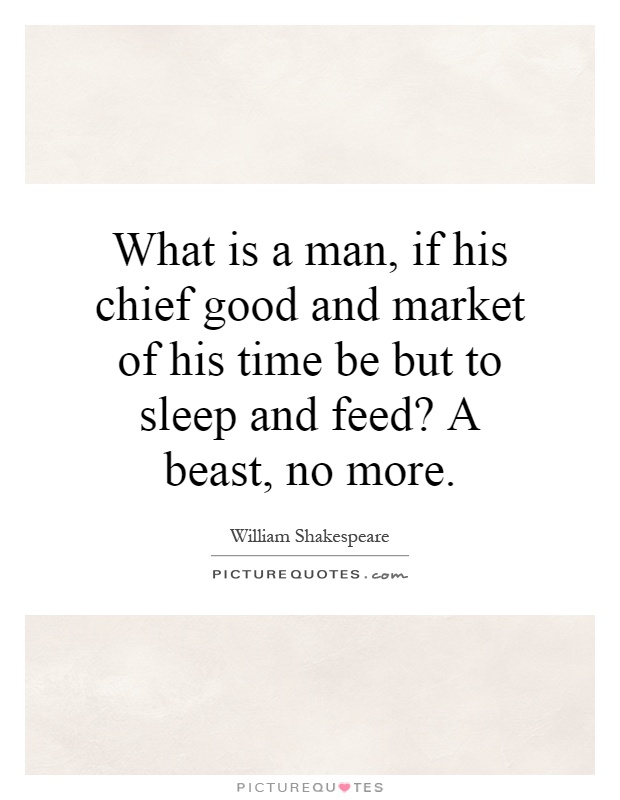What is a man, if his chief good and market of his time be but to sleep and feed? A beast, no more

What is a man, if his chief good and market of his time be but to sleep and feed? A beast, no more
In William Shakespeare's play, "Hamlet," the character of Hamlet reflects on the nature of man and what sets him apart from beasts. The famous quote, "What is a man, if his chief good and market of his time be but to sleep and feed? A beast, no more," speaks to the idea that humans are capable of so much more than simply existing to fulfill their basic needs.Shakespeare's exploration of this theme delves into the complexities of human nature and the potential for greatness that lies within each individual. In the context of the play, Hamlet is grappling with his own existential crisis and questioning the purpose of life. He is disillusioned with the world around him and the actions of those in power, leading him to ponder the true essence of humanity.
The quote suggests that if a man's only focus is on satisfying his physical desires, then he is no different from an animal. Humans have the capacity for reason, creativity, and moral agency, which sets them apart from the instinctual behavior of beasts. By emphasizing the importance of striving for something greater than mere survival, Shakespeare challenges his audience to consider what it means to be truly human.
Throughout "Hamlet," Shakespeare explores the complexities of human nature and the struggle to find meaning in a world filled with deceit and corruption. Hamlet's internal conflict mirrors the larger themes of the play, as he grapples with his own identity and purpose in the face of tragedy and betrayal.
Ultimately, Shakespeare's quote serves as a reminder of the potential for greatness that lies within each individual. By challenging his audience to think beyond their basic needs and desires, he encourages them to strive for something more meaningful in their lives. In the context of "Hamlet," this message resonates with the themes of ambition, revenge, and the search for truth, making it a timeless reflection on the nature of humanity.












 Friendship Quotes
Friendship Quotes Love Quotes
Love Quotes Life Quotes
Life Quotes Funny Quotes
Funny Quotes Motivational Quotes
Motivational Quotes Inspirational Quotes
Inspirational Quotes